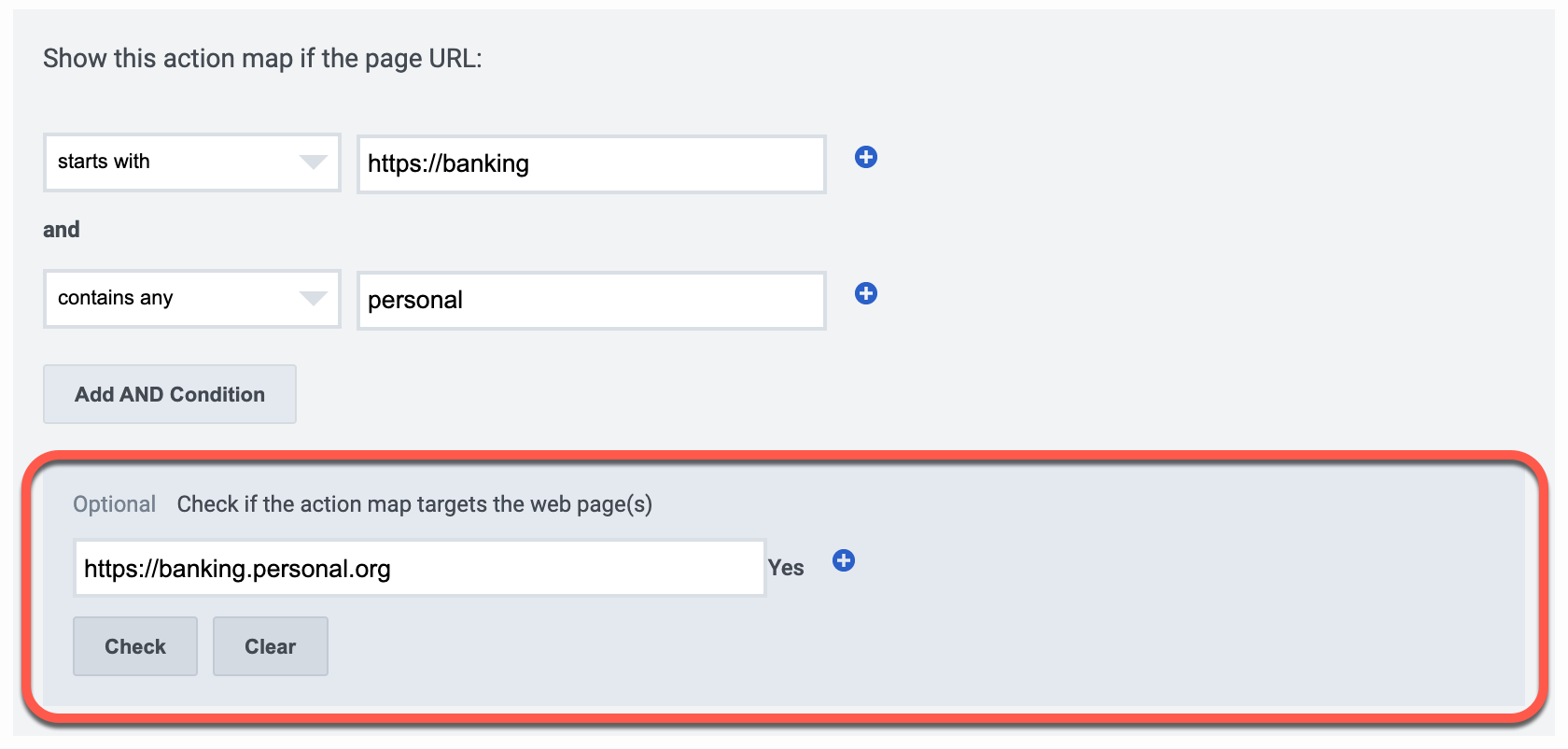Apply an action map to specific webpages
Contents
Learn how to specify the webpages where an action map triggers.
Prerequisites
- Configure the following permissions in Genesys Cloud:
- Journey > Action Map > Add, Delete, Edit, and View (to create action maps)
- Journey > Action Target > View (to select a team to handle interactions from the action map)
- Create segments.
- Create outcomes.
Apply an action map to webpages
About conditions
You can add as many conditions as you need. For OR conditions, the action map triggers when either condition is true. For AND conditions, the action map triggers when both conditions are true.
As you define conditions, Genesys Predictive Engagement checks for syntax errors, including a valid protocol, spaces and extra special characters. If there are syntax errors, Genesys Predictive Engagement displays an error message. For more information, see the notes for the operator that you are using.
Verify that the expression is valid
- If you are using the equals, or not equals operators, ensure that you specified a full URL.
- If you are using the equals, not equals, or starts with operators, ensure that you specified the protocol.
Operators for URL conditions
- Separate a list of values with commas
- Available operators depend on the object type that you are configuring.
| Operator | Action map triggers when the page URL... | Comments |
| contains all | contains all the characters that you specify | |
| contains any | contains one or more characters that you specify | |
| does not contain all | does not contain all the characters that you specify | |
| does not contain any | does not contain any of the characters that you specify | |
| equals | matches the full URL that you specify exactly, including case | Specify the full URL, including the protocol; either "http:" or "https:".
If you define an equals condition, you cannot define an AND condition. Correct:
Incorrect:
|
| not equals | does not match the full URL exactly as you specify, including case | Specify the full URL, including the protocol; either "http:" or "https:".
If you define a not equals condition, you cannot define an AND condition. Correct:
Incorrect:
|
| like | matches some of the characters that you specify | This operator is useful when you want to target a unique query string parameter (a keyword) that appears in multiple URLs.
You can define conditions containing multiple like and not like operators. Correct:
|
| not like | does not match any of the characters that you specify | |
| starts with | matches the characters that you specify, starting from the beginning of the string, up to and including the last character in the string | Use this operator when your URLs are generally unvarying but can include query string parameters at the end that you want to exclude.
Specify the protocol; either "http:" or "https:". You can have one starts with or one ends with operator per condition. Correct:
Incorrect:
|
| ends with | matches the characters that you specify, starting from the end of the string, up to and including the first character in the string | Use this operator when you want to match a specific query string parameter at the end of the URL.
For example, you can match shopping cart pages with URLs that end with "/thankyou.html". You can have one ends with operator per condition. |


